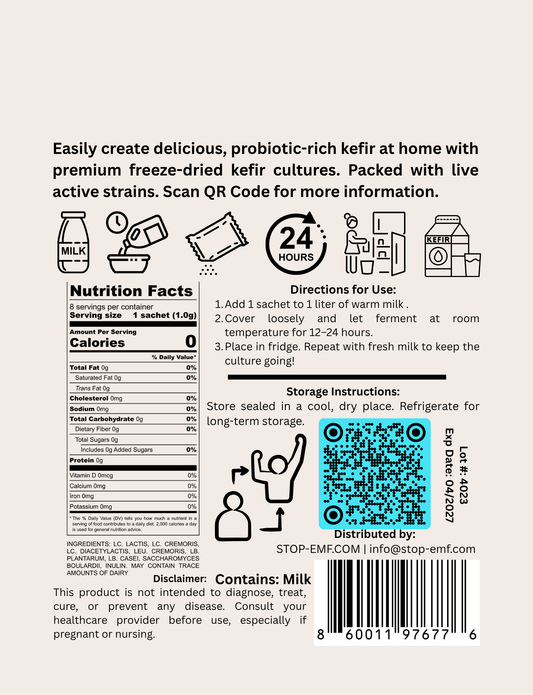As the days grow shorter and the temperatures drop, many of us find ourselves battling a familiar foe: increased susceptibility to illness. While the summer months often bring a sense of rejuvenation and vitality, the winter season can present a unique set of challenges when it comes to maintaining our health. In this comprehensive blog post, we'll explore the reasons behind this seasonal shift and uncover strategies to help you stay healthy and resilient throughout the colder months.
The Physiological Factors Behind Winter Illnesses
One of the primary reasons why people tend to get sick more often in the winter is the impact of environmental factors on our bodies. As the temperature drops and daylight hours decrease, our bodies undergo a series of physiological changes that can make us more vulnerable to illness.
Reduced Vitamin D Levels
Vitamin D, often referred to as the "sunshine vitamin," plays a crucial role in supporting our immune system. During the summer months, our bodies can synthesize vitamin D from exposure to sunlight. However, in the winter, when sunlight exposure is limited, our vitamin D levels can plummet, leaving us more susceptible to infections and chronic diseases.
Weakened Immune System
The colder temperatures and reduced sunlight exposure can also have a direct impact on our immune system. Studies have shown that the immune system's response to pathogens can be impaired during the winter months, making us more susceptible to viral and bacterial infections.
Increased Stress and Inflammation
The winter season can also bring about increased stress and inflammation in the body. The combination of holiday demands, reduced physical activity, and the emotional toll of the "winter blues" can contribute to elevated cortisol levels and a heightened inflammatory response, both of which can weaken the immune system.
Behavioral Changes that Contribute to Winter Illnesses
In addition to the physiological factors, the behavioral changes that often accompany the winter season can also play a significant role in the increased incidence of illness.
Indoor Crowding and Poor Ventilation
During the colder months, people tend to spend more time indoors, in close proximity to others. This indoor crowding, combined with poor ventilation, can facilitate the spread of airborne illnesses, such as the flu and the common cold.
Reduced Physical Activity
The winter weather can discourage many people from engaging in regular physical activity, leading to a more sedentary lifestyle. This reduction in physical activity can have a detrimental effect on the immune system, as exercise has been shown to enhance the body's ability to fight off infections.
Holiday Gatherings and Travel
The winter holiday season often brings about increased social interactions, including family gatherings and travel. These events can expose individuals to a wider range of pathogens, increasing the risk of contracting and spreading illnesses.
Seasonal Affective Disorder and Stress
The winter months can also take a toll on our mental health, with many people experiencing seasonal affective disorder (SAD) or the "winter blues." This condition, characterized by symptoms such as depression, fatigue, and changes in appetite, can contribute to a weakened immune system and a higher susceptibility to illness.
Strategies for Staying Healthy During the Winter
While the winter season may present unique challenges, there are several strategies you can implement to maintain your health and well-being throughout the colder months.
Prioritize Vitamin D Supplementation
Since sunlight exposure is limited during the winter, it's essential to ensure adequate vitamin D intake through supplementation. Consult with your healthcare provider to determine the appropriate dosage for your individual needs.
Boost Your Immune System
Incorporate immune-boosting foods, such as citrus fruits, leafy greens, and probiotic-rich foods, into your diet. Additionally, consider taking supplements like zinc, elderberry, and echinacea, which have been shown to support the immune system.
Maintain Regular Exercise Routines
Even during the winter, it's crucial to maintain a consistent exercise routine. Look for indoor activities, such as yoga, Pilates, or at-home workouts, to keep your body active and your immune system strong.
Practice Stress Management Techniques
Engage in stress-reducing activities, such as meditation, deep breathing exercises, or mindfulness practices, to help mitigate the negative effects of stress on your immune system.
Prioritize Quality Sleep
Aim for 7-9 hours of quality sleep each night, as adequate rest is essential for immune function and overall well-being.
Limit Indoor Crowding and Improve Ventilation
When possible, try to avoid crowded indoor spaces and ensure proper ventilation in your living and work environments to reduce the risk of airborne illness transmission.
Be Mindful of Holiday Gatherings and Travel
If attending holiday gatherings or traveling, take precautions such as wearing masks, practicing good hand hygiene, and maintaining physical distance from others to minimize the spread of illnesses.
By understanding the physiological and behavioral factors that contribute to increased illness during the winter, and by implementing these strategies, you can take proactive steps to maintain your health and well-being throughout the colder months. Remember, staying healthy is not just about managing the symptoms of illness, but about building a strong foundation of resilience and vitality that can carry you through the winter and beyond.
Conclusion
The winter season presents unique challenges when it comes to maintaining our health, but with the right knowledge and strategies, we can navigate this time of year with greater ease and resilience. By addressing the physiological and behavioral factors that contribute to increased illness, and by implementing a holistic approach to self-care, we can not only protect ourselves from winter-related illnesses but also cultivate a greater sense of overall well-being. Remember, taking care of your health is an ongoing journey, and the winter months offer an opportunity to deepen your commitment to your own well-being.






